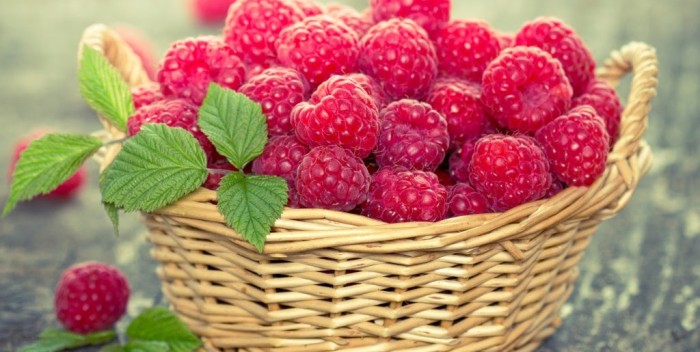Raspberry and its benefits
Raspberries are known for their healing and antipyretic properties during colds. It contains a lot of useful microelements, vitamins, especially a lot of vitamin C. It can be consumed fresh and frozen, it makes delicious jam, compote, filling for pies, it is also good for decorating cakes, ice cream and other desserts.
Content
The benefits of raspberries 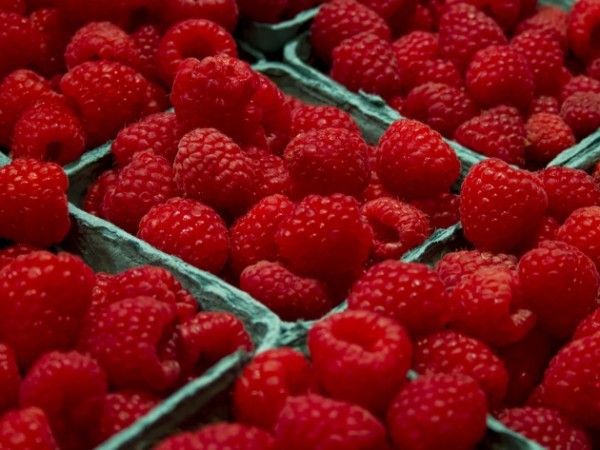
The usefulness of the berry is colossal - these are vitamins C, A, E, PP, group B, essential oil, glucose, calcium, copper, potassium, iron, sucrose, fructose, malic, salicylic, formic, tartaric and nylon acids. All these vitamins and minerals are easily absorbed by the body.
Berries are very useful and effective for:
- colds;
- poor digestion;
- gastrointestinal diseases;
- poor appetite;
- inflammation of the skin;
- flu;
- radiculitis;
- fever;
- joint pain;
- anemia;
- hypertension;
- anemia;
- constipation;
- insomnia;
- kidney problems;
- atherosclerosis;
- stomatitis;
- heart rhythm problems.
Fresh raspberries can help with intoxication, it speeds up the sobering process. The copper in the berry works as an antidepressant, so it can be used to raise mood and get out of depression and nervous tension. Due to the large amount of various vitamins, raspberries help to keep the skin toned, giving it a healthy look and tone.
Raspberry berries are known in different areas of medicine: folk, oriental. It is believed that raspberries are popularly consumed when the prostate gland grows, thereby helping it to shrink in size. In the East, berries are added in the manufacture of various pills and fees, while it helps to get rid of infertility and improve potency in men.
Raspberries tolerate heat treatment and freezing very well without losing their beneficial qualities. That is why diaphoretic tea is brewed with it for colds, raspberry jam is added to tea. Not only berries are used, but also leaves from a bush. A decoction is made from it, which helps with diarrhea and bleeding when consumed internally, and for external use it is suitable for gargling the throat and mouth with inflammation.
Raspberries are low in calories and 85% water, so they can be consumed by those who sit on diets or wants to quickly lose a couple of extra pounds. At the same time, it removes salts of heavy metals, restoring metabolism.
Raspberry also demonstrates its beneficial qualities in cosmetic procedures and products. It is added to various creams, masks, scrubs, shampoos, lip balms, toothpaste. Essential oil is used for aroma sessions, add while taking a bath or in relaxing hand and foot baths. In beauty salons, raspberries can be added to a peeling mixture for a delicious scent, scrubbing and toning effect.
In the culinary industry, raspberries are also in demand: they make compotes, jam, make jelly, decorate pies and cakes, prepare stuffing from it in pies, pastries, pies, dumplings. It can also be added to natural yoghurts, cottage cheese, kefir, milkshakes, ice cream, waffles, light desserts.
Raspberry harm 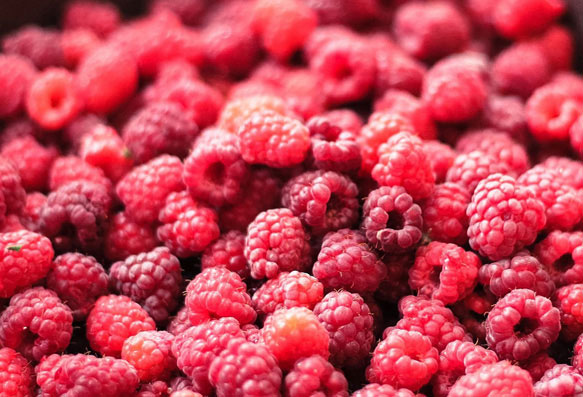
Berries should not be overused, you can get an unpleasant allergic reaction: itching, redness, irritation. Those who are allergic to this berry or essential oils should also refrain from adding raspberries to their diet.
For peptic ulcers, gastritis, urolithiasis, kidney disease, gout, asthma, raspberries are not recommended. Do not overeat the berry for future mothers, in order to avoid an allergic reaction in a woman or a baby. The berry is harmful to those who take medications that affect blood clotting.
Raspberry contraindication 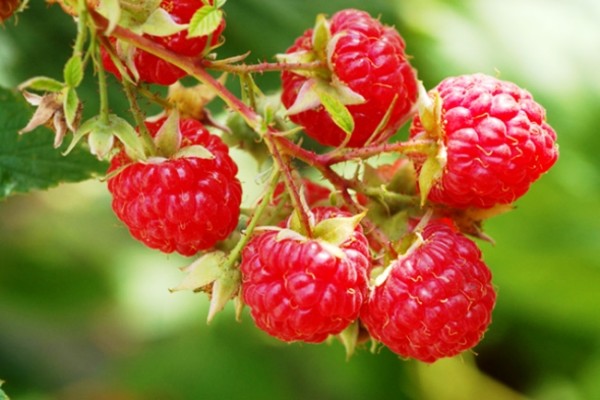
Berries are contraindicated for those who suffer from allergies, young children, people with diabetes. In children, raspberries can cause diarrhea and allergies. Deciduous infusion or decoction should not be taken by women in position, it can cause contraction of the uterus.
Raspberries during pregnancy 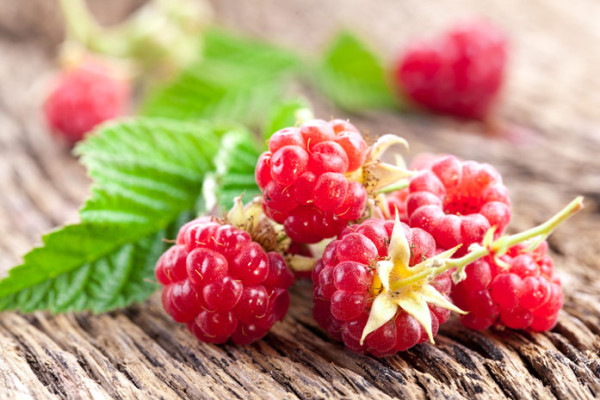
The question of whether raspberries can be used in pregnancy is controversial. Of course, raspberries are very healthy. During pregnancy and colds at this time, medications are not recommended, therefore jam or a fresh berry will be very useful, so as not to harm either mom or the unborn baby. There is a lot of fiber in the berry, it is she who helps to avoid constipation and to establish normal digestion.
Folic acid and protein help with cell development and fetal formation. Calcium contained in berries is also necessary during pregnancy for teeth, bones and nails, at the same time it removes swelling. Raspberries can prevent toxicosis. For all its pros and cons, there is a small clarification: the berry does not need to be overused. The most optimal amount per day is no more than three large spoons of berries or two spoons of jam. Also, it should not be used with the contraindications that were described above, during contractions and immediately before childbirth.
Raspberry for children 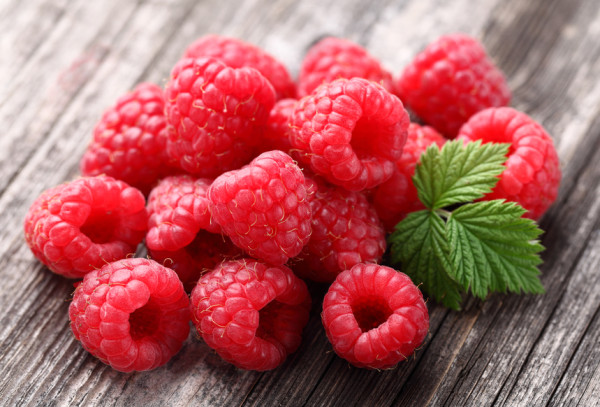
For the smallest ones, it is strictly not recommended to give fresh, and processed berries. Due to its bright shade, it can cause red spots, itching and allergies in a child. The ideal age for introducing raspberries into the diet is from 10 months to a year, depending on the feeding of the child. It is better to start with half a berry during the morning feeding. In this case, during the day, it is necessary to observe the child for the manifestation or absence of the body's reaction.
If everything has been mastered perfectly, then you can increase the dose to 50-90 g per day. You can give it fresh, jam, add to cereals, desserts, yoghurts, tea.
If an allergy to a berry still manifests itself, then it is best to wait with the introduction of this product up to 2-3 years. Naturally, the berries must be clean, of good quality, ripe, and best harvested from their own garden. Raspberries should be dry, not crushed, without mold, with a pleasant taste and aroma.
